Looking ahead, this week we have the Queen’s Speech and talks are continuing to see if there is any chance of a Brexit deal ahead of the Benn Act deadline. Parliament will sit next Saturday. The government is expected to lose the vote on the Queen’s Speech (apparently for the first time in 95 years) and there will be a post-Brexit budget on 6th November assuming that the UK leaves the EU on 31st October. And we are getting closer to the time when the parties may agree to a general election being called.
We have news on T levels and what students really want in the tuition fees vs living costs debate.
What might happen to education and skills policy if there is an election?
Dods have produced an overview of all the Education and Skills policy announcements from the party conferences.
Brexit / UK political context
- You Gov measure public feeling on whether the Brexit deadline will be met.
- However, if Brexit is delayed it seems the comms plan has worked and the public feeling is that it isn’t Boris’ fault.
- On Tuesday the Government published the Brexit No Deal Readiness Report which updates Parliament and the public on the legislative, regulatory and systemic changes that will occur following a no deal Brexit. It also details the steps the Government has taken and remaining actions they intend to take to enable business and the public to prepare for the change. It is a lengthy document and Dods political monitoring consultants have prepared a summary and key points.
Private Members Bills: We are expecting the Private Members Bills (PMB) ballot to take place around Thursday 24 October (although in the Brexit disruption anything could happen). MPs enter a ballot and the first 20 picked out of the hat have the opportunity to introduce a PMB on a topic of their choice (or sponsor someone else to introduce the Bill) on a Friday set aside for this purpose. Those successful in the ballot get first opportunity for 7 of the extra Fridays. Another 6 Fridays are available later in the parliamentary calendar in which keen MPs unsuccessful in the ballot vie to introduce their own legislation.
Over 400 MPs enter the ballot which is only held once in a parliamentary session, so the chances of being selected are low. And even if they get their Bill before Parliament, few of them get very far partly due to parliamentary convention – whereby other MPs can vote them out early in the process (Christopher Chope is infamous for doing this). If they aren’t killed off this way, there is usually insufficient parliamentary time for them to go through the full process. Finally prorogation at the end of the session kills all Bills that have not become law before the end of the parliamentary session.
For example, all the current PMBs that were proceeding have now been closed down ahead of the Queen’s Speech, including:
- Student Loans (Debt Interest) Bill
- Representation of the People (Young People’s Enfranchisement and Education) Bill
- Gypsy and Traveller Communities (Housing, Planning and Education) Bill
- Schools (Mental Health and Wellbeing) Bill
- School Holidays (Meals and Activities) Bill
- Parental Rights (Rapists) and Family Courts Bill
- Youth (Services and Provisions) Bill
- National Living Wage (Extension to Young People) Bill
Lastly, even if an MP is successful in the ballot they may be targeted by the Government to introduce a ‘handout’ Bill. This is where the Government persuades the MP to introduce legislation that the Government either does not wish to introduce themselves or did not find parliamentary time for.
T Levels
In last week’s policy update we described Secretary of State for Education, Gavin Williamson’s, firm support for technical and vocational routes. This week the Government are pushing ahead in their T-level preparations and have launched the NexT Level national campaign building support for T levels which will commence next academic year as an alternative to A levels. A substantial amount of extra funding is available to the early adopters who are expected to work with DfE to tweak and develop the T levels.
From 2020/21 three T levels will be delivered – Digital, Education and Childcare, and Construction. In September 2021 seven more T levels will be added including subdividing digital and construction into two different pathways and adding a Health and Science route. From September 2022 three new sectors will be added: Legal, Finance and Accounting, Engineering and Manufacturing, Business and Administration. And from September 2023 the remaining T levels will come on board (making 25 T levels in all), including Agriculture, Environment and Animal Care, Creative and Design, Hair and Beauty and Catering and Hospitality.
Education Secretary, Gavin Williamson, said: T Levels are a complete game changer – high-quality technical courses that will give young people a head start in their careers and that will rival top performing technical education systems like those offered in Germany. With less than a year to go before the first T Levels are taught, we want to make sure young people and their parents know all about the brilliant opportunities these new qualifications will offer. Our new campaign will help make sure they have all the info they need.
Sir Gerry Berragan, Chief Executive of the Institute for Apprenticeships and Technical Education, said: We are extremely excited about launching T Levels that will provide a gold standard of technical education on par with A Levels. The Institute fully supports this campaign. It’s important that potential students and their parents are aware that they will be rolled out from next academic year. We know that many young people are looking for an exciting alternative to the academic route and want to start training for their chosen careers after completing their GCSEs.
Tech Reskill Entitlement
Universities and Science Minister Chris Skidmore spoke at the TechUK conference on putting skills at the centre of innovation. Here is some of what he said:
No one can ignore the gathering force of technology that is reshaping the future of each and every one of us… Every day, developments in digital technologies are pushing the boundaries of what is possible. And, together, your companies and innovations are stretching the limits of what humanity can achieve, and what the UK can achieve as a nation….
- UK investment in AI has also grown almost 6-fold in the 4 years between 2014 and 2018.
- Our tech sector is going from strength to strength in front of our very eyes, growing at 50% faster than the rest of the UK economy.
I am keenly aware that our tech sector won’t go on thriving if we don’t concentrate on people. On putting people and skills at the centre of our innovation system. On ensuring that our regulatory system is as modern as the technologies that it supports. So, let’s take keeping the brightest and best people in the sector first. How do we do it?
Well, we need to recognise and address the challenges researchers and innovators face on a day-to-day basis. Developing a people-first research strategy is just one part of this.
Last month, I was pleased to support the launch of the revised Concordat to Support the Career Development of Researchers. This encourages signatories from across higher education and innovation to work together on the challenges facing researchers in the world today.
- A world where research positions are shorter and more precarious than they used to be.
- A world, which relies on the continuous transfer of talented people between academia and industry.
- And a world where individuals may find themselves balancing heavy workloads with poor mental health and wellbeing.
It is on all of us to ensure we are supporting people across the entire innovation and tech sector to be the best they can be. From researchers, academics and innovators, to technicians, postgraduates and post-docs.
All of these people together are integral to the overall strength and prowess of UK tech. Embracing diversity in the sector is crucial to getting this right.
This government is determined to address the gender imbalance in tech careers, in particular by improving girls’ take-up of maths, computing and physics at all stages of the education system from primary school through to university. We’re keen that more people from currently under-represented groups, including those with disabilities and those from Black, Asian and Minority Ethnic communities, realise a career in tech can be for them as much as anyone else.
…And we’re not just talking about young people here. We’re also talking about adult learners. Those people who, later in life, want to access the further technical training they need. In the digital age, education is going to become a lifelong endeavour, not just something you do until you’re 18 or 21…That’s why we’ve put in place now a commitment to introduce a national entitlement to adult basic digital skills training from 2020. Adults without the digital skills needed for life and work will have the opportunity to study new qualifications free of charge, so that nobody gets left behind as the world around us inevitably moves on.
…if we’re serious about meeting our target to invest at least 2.4% of GDP in R&D by 2027 then we can’t just rely on home-grown talent alone. Creating a climate based on the free movement of talent is obviously going to be key to generating the numbers and diversity the sector needs. The International Research and Innovation Strategy I launched earlier this year best evidences our commitment to global engagement in the science and tech sectors.
And the International Education Strategy, launched the same month, sets out our ambition to increase the number of international higher education students studying in the UK by over 30% to 600,000 by 2030.…And thanks to the hard work of my successor-come-predecessor, Jo Johnson, the introduction of the Graduate Route, or 2-year post-study work visa, will hopefully incentivise much of this talent to stay on our shores, work in our companies, and set up their own businesses.
…It cannot have escaped anyone’s notice that our Research and Innovation sector is incredibly concentrated in London and the South East. Per-capita spending on Research & Development in the North East is way under half that in London.…If we are to become an innovation nation, then we must learn from this, ensuring that the whole of the UK benefits from our tech revolution. This means ensuring that our most innovative SMEs can scale up and access seed funding as well as large grants, enter the market, and even shape new markets.
…I want us to build on the work we’ve done with University Enterprise Zones, which I launched last month, and to build on our amazing network of incubators, accelerators, catalysts and catapults – spreading the benefits right across the UK. To create a truly business-friendly environment. To join together research, development, and innovation. And to create a new unity of purpose.
For as long as I’m Universities and Science Minister, I want to help the UK to find a new gear, to put the UK tech sector in the fast line, and to grow an incredible tech ecosystem that can accelerate into the future.
International student outcomes
HE metrics often focus on home students, however, SoS Gavin Williamson, has highlighted the Government is looking closes at the gaps for international students – their drop-out rate and the likelihood of them achieving a good honours degree. Two blogs on Wonkhe tackle these issues.
- Gavin Williamson is right on international students explores an international attainment gap of 10% and how difficult it is to obtain reliable data on international students to benchmark or make accurate judgements.
- Shining a spotlight on international graduates explores whether shining A spotlight on our international graduate destinations could lead to a long overdue investment in international student employability support …because [while] international outcomes are [currently] counted – but don’t actually count [for TEF metrics]…– it can be a real struggle to get funding for the specialist support our students need and deserve. The blog also highlights that international students, the majority of whom choose to study abroad to better their career prospects, are least satisfied that they have received value for money.
Julia Buckingham, President of UUK said: “Universities are listening to concerns about grade inflation and these initiatives show our determination to ensuring transparency and consistency in the way degrees are awarded.”
Grade Inflation
Wonkhe report that the UK Standing Committee for Quality Assessment (UKSCQA) has agreed initiatives to more widely publicise degree standards information and has produced institutional guidance. UKSCQA will expect providers to publish a voluntary Degree Outcomes Statement on their website which describes their degree outcome data and explains any changes. They’ve produced guidance for institutions.
SoS for Education Gavin Williamson states: “It’s crucial that students, graduates and employers can trust the value of a university degree and the achievements of students who put in the hard work aren’t undermined”, adding that “grade inflation has become entrenched in higher education”, and that he will be “watching closely” to see if these initiatives work, and expecting the OfS to “challenge institutions which continue to record unexplained rises in top degrees awarded”.
Julia Buckingham, President of UUK said: “Universities are listening to concerns about grade inflation and these initiatives show our determination to ensuring transparency and consistency in the way degrees are awarded.”
The Guardian covers the story and Wonkhe have a dissection blog by David Kernohan. Kernohan is quoted in the Guardian article: “the effort to boil down a complex set of algorithms and classifications into a brief text, as the code requires, was unrealistic…If you are setting out such broadly applicable descriptions you are in danger of not adding anything tangible to the subject specific learning goals and outcomes that already exist in course documentation…With such rubrics already available…what exactly do these non-exhaustive generic descriptors actually add? The idea of consistency in measures of learning is attractive, if unlikely. A mention of a provider’s adherence to these descriptions in their degree outcomes statements seems to be the likely endpoint. And I’m not sure who benefits from that.”
Fees & Funding
The Higher Education Policy Institute have published results from new research on undergraduate students’ views of the education funding system. It finds that students are mixed in their attitudes towards the current tuition fee model and Augar recommendation to lower fees. It finds:
- 79% of students stated that the level of interest charged is one of the most important aspects of the funding system
- 40% prefer the current system of £9,250 paid back over 30 years; 41% prefer Augar’s approach of £7,500 paid off over 40 years; and 18% have no preference between the two.
- Students are supportive of Augar’s recommendation to bring back maintenance grants, with 53% of students advocating for a mixed system of maintenance grants and loans and 32% saying they would prefer grants only
- Cost of living is a higher priority for students than tuition fees, with 59% saying it is their top funding concern.
- Over half (52%) of students’ parents contribute to their living costs
- Of the students whose parents contribute towards their living costs, half (50%) receive more than £1,000 every year, 29% of students receive between £500 and £1,000 and 21% receive less than £500.
- Many students see living away from home as critical to their university experience, with around half (49%) saying they would still choose to live away from home even if this came at a greater cost
- Over half (57%) of students say living away from home was important to them when they applied to university
Rachel Hewitt, HEPI’s Director of Policy and Advocacy, said:
- Many believe that in the current political environment the eagerly anticipated Augar review is dead in the water. The current minority Government lacks both the political sway and desire to implement the report’s recommendations. Our polling shows students are also split in their views on whether Augar should be implemented. They find the recommendation of lowering fees to £7,500 is no more appealing than the current system. Instead students’ main priority is the money available for living costs and ensuring the system operates fairly by reintroducing maintenance grants for the poorest students.
- With an election potentially around the corner, politicians should take heed of students’ priorities. A winning offer to students may not involve focusing on tuition fees but instead on less headline-grabbing aspects, such as the maintenance system and interest rates.
Disadvantaged Participation and Success
Care students: UUK have a new blog on care leavers highlighting that the restrictive definitions that English universities apply and the strict criteria for access to bursaries is creating barriers. Earlier this year Scottish Universities unanimously agreed an open approach whereby any form of care experience, at any age, leads to enhanced support and consideration. The UUK blog calls on English universities to do more to remove barriers….Universities should consider the merits of adopting a definition of care experience which does not exclude certain individuals based on length of time in care, type of placement, or age, to ensure all individuals with care experience receive appropriate support. The most effective support replicates the financial and emotional safety-net that a family provides. Sensitivity is vital……and to recognise that many care leavers are often mature students.
Finally, the blog highlights that the National Network for the Education of Care Leavers (NNECL) is creating a sector-specific quality mark for supporting care leavers. (The hyperlink brings up a log in box, just press the X to get rid of the log in box and read the pilot quality mark launch article.)
Social Mobility: The Army and the Royal Air Force have been recognised as within the top 100 employers in the country for encouraging social mobility. The Minister of Defence was also listed within the Social Mobility Index. The Index lists organisations that have taken substantial action to improve social mobility in their workplace and ranks employers on the actions they are taking to ensure they are open to and accessible to progressing talent from all backgrounds.
New Trials: The Education Endowment Foundation has launched three new trials.
- Children’s University
Nine- and 10-year olds in 150 primary schools across England will take part in the EEF-funded trial of Children’s University, which aims to raise the aspirations and attainment of pupils by providing learning activities and experiences outside of the classroom. Each pupil will get a ‘Passport to Learning’, used to record each activity and hours spent on the activities. Children will make their own choice from a wide range of activities and receive a stamp in their passport on completion. Activities range from walking trails and gymnastics, to trips to wildlife parks, sports sessions and performing arts classes.
- SEND Review
A programme, delivered by the National Association for Special Educational Needs, that aims to improve provision for pupils with SEND in mainstream schools by helping schools to evaluate the effectiveness of their provision, and then implement a bespoke action plan to target areas of priority and drive improvement. Around 150 mainstream secondary schools will take part in the trial, which will be independently evaluated by a team from Manchester Metropolitan University.
- Headsprout Early Reading in Special Schools
A programme, delivered by Bangor University, which aims to improve reading skills through a computer programmes that adapts instruction in response to children’s answers. Activities are designed to be engaging, with pupils working through cartoon-based worlds via tasks that resemble computer games. Bangor University have piloted the programme in UK special schools, and over 100 special schools will now be invited to take part in a large-scale trial of the programme for primary-aged children with SEND.
Official figures show there is a larger attainment gap for pupils with SEND than for any other group. In 2018, just 21% of these pupils achieved the expected standard in reading, writing and maths at age 11, compared to 74% of their classmates. Pupils with SEND are twice as likely to come from disadvantaged homes, too (27% of pupils with SEND are eligible for free school meals compared to 12% of all other pupils) and so face a double disadvantage in the classroom.
Sir Kevan Collins, Chief Exec of the EEF, said:
- All young people deserve the chance to access a well-rounded and culturally rich education. Yet we know that those from disadvantaged backgrounds are less likely to take part in the sort of activities that Children’s University provide. Our previous trial found that taking part in the programme had a promising impact on reading skills, as well as on attributes like teamwork and aspirations. This new trial will find out if these positive findings can be achieved at scale. The results will help schools to make decisions about how best to target their resources and provide enrichment activities in their school.
- It is great that we’re able to announce our first two trials of programmes focused on improving outcomes for pupils with special educational needs. The attainment gap is widest for this group and the evidence we generate from these trials will provide much needed evidence of how best to support them.
Mental Health
Professor Elaine Fox, University of Oxford, has been appointed as UK Research and Innovation (UKRI) Mental Health Networks Impact and Engagement Coordinator. She will help encourage and facilitate engagement and collaboration between the eight Mental Health Networks and maximise their impact. The eight Mental Health Networks embrace a collaborative ethos, with researchers from a wide range of disciplines (including health, medicine, biology, social sciences, humanities and environmental sciences, insights from charity workers, health practitioners and people with lived experience of mental health problems). The networks aim to progress mental health research in themes such as the profound health inequalities for people with severe mental ill health, social isolation, youth and student mental health, domestic and sexual violence, and the value of community assets. The coordinator role will help to raise the public profile and quality of mental health research in the UK.
Professor Fox said: “I am absolutely delighted with this appointment and look forward to working with the eight Mental Health Networks to help shine a light onto the importance of mental health research. If we want a world in which mental health problems can be effectively treated and prevented we will need highly collaborative research teams bringing together expertise from many disciplines, including expertise that comes from lived experience.”
Research
Universities Minister Chris Skidmore delivered a speech on international research collaboration at the British Academy. Key Points:
- Our universities, and innovative businesses, are powered by openness, and are strengthened by it…openness to ideas, to talent, to internationalism, and to collaboration – all of which bring real vibrancy to our universities and our wider research base in academia and industry alike. One of the enablers of this great openness has been our partnerships with the continent of Europe, over many centuries, helping us to develop a shared sense of culture, shared collective experiences, and a like-minded approach to the values of civilisation, enlightenment and liberty.
- Irrespective of Brexit, sowing the seeds of intellectual and cultural unity across Europe is something that absolutely can and must continue. Yet, we cannot ignore the basic fact some of our largest international partnerships in science and research to date have been undertaken while we’ve been a member of the EU…as you know, the government has put in place guarantees for Horizon 2020, which apply whether or not we leave with a deal.
- The European University Institute (EUI) is just one example of European collaboration on education and research. I am pleased to announce that we have concluded an interim arrangement with the EUI, to cover the period from Brexit until the middle of next year, as a transitional measure if we leave the EU without a deal. And now that we have concluded an interim arrangement, I have asked my officials to explore the possibility of a future relationship with the EUI.
- We have sought to put in place robust contingency plans so that Erasmus+ projects that are already underway can continue if we leave without a deal. I hope that we will secure a deal shortly: a deal, which we all know would enable our continued participation in EU programmes such as Horizon 2020 and Erasmus+. But if there is not movement from the EU, we are ready to leave without a deal.
- The government committed on the 8 August to ensuring that all UK bids to mono-beneficiary calls – the European Research Council, Marie Sklodowksa Curie Actions and the European Innovation Council Accelerator calls that are submitted to Horizon 2020 before Brexit would be evaluated in all scenarios. This means researchers and innovators can continue to submit proposals to Horizon 2020 with confidence, right up to the point of exit, knowing that the best proposals will be funded – regardless of how we leave the EU.
- In the last 3 years, over 52% of the UK’s academics publications were produced in collaboration with international partners. Our International Research and Innovation Strategy aims to protect this, but also enhance this. It is also why we have announced the return of the Graduate Route – or the 2-year post study work visa.
- [The strategy] builds upon the work we have begun this decade, with the investment in the Global Challenges Research Fund and the Newton Fund, partnering with countries across the globe, expanding research excellence in fields of study that are meeting global challenges for the future.
Chris Skidmore also wrote to Research England’s Executive Chair, David Sweeney on the KEF this week. In addition to the points already described above he also states:
- Quality-related Research (OR) funding remains important to our research success within this system. I full recognise the value of QR’s un-hypothecated nature which contributes to a sustainable research system and allows universities to deploy funds strategically.
- I remain firmly committed to encouraging universities to strive for both research excellence and the “impact agenda”. I therefore welcome the progress that you have made with the devolved HE funding bodies in detailed preparations for Research Excellence Framework (REF) 2021, in which research impact will account for 25% overall.
- Open Access is a key feature of REF2021. I encourage Research England to continue to support the implementation of full and immediate open access, in line with global efforts in this area.
- I have re-committed to a strategic, long term approach to knowledge exchange and confirmed the important role that Higher Education lnnovation Funding (HEIF) plays in supporting effective university-business engagement. I am pleased that Research England, in consultation with the Office for: Students, will now be launching a full review of HEIF, undertaking a radical reform work programme over the next three years, including a fundamental review of the HEIF methodology. This reform plan will aim to put KEF at the heart of our approach.
- All our HE institutions can play an important role in addressing the particular economic and social issues facing different local areas. I encourage you to support universities in understanding more about local issues and priorities, and in deploying their intellectual assets for the benefit of people in every part of the country. I am pleased that you have established the Expanding Excellence in England Fund to build high quality research capacity in areas of the country which do not yet have the ability to address urgent problems. There is scope for further rounds, in particular to help increase research capacity to tackle place-based research problems.
- I recognise the important work that Research England/UKRI has undertaken in collaboration with the OfS, and look forward to this continuing to strengthen on areas of shared interest.
And last week BEIS SoS Andrew Leadsom launched a package of measures supporting UK researchers and business to innovate and embrace the green tech revolution.
Hate Crime
The Commission for Countering Extremism published its report into challenging hateful extremism. The report states the current strategy for countering extremism is “insufficient and too broad”, and calls for a major overhaul of government strategy. They propose a human-rights-based strategy to countering extremism, through detailed recommendations for government and civil society. Further recommendations include:
- Provide greater clarity on the difference between work to counter terrorism and to counter hateful extremism.
- Work to build resilience in communities against those who seek to restrict the rights and opportunities of others, particularly women and young people.
- Deliver the commitment to set out who it will or will not engage and why.
- Do more to support and protect those organisations and individuals who are countering extremism from abuse, harassment and intimidation.
UUK also published results this week from their harassment and hate crime survey, following up on how institutions are responding to the ‘Changing the Culture’ taskforce report. Key points from the 100 university respondents:
- 81% have updated their discipline procedures, with 53% introducing or making additions to the student code of conduct
- 81% improved support for reporting students and 67% improved support for responding students
- 78% provided students clear information on how to report an incident
- 72% developed or improved recording of data on incidents with a more centralised approach
- 65% have rolled out consent training to their students
- Over a third reported recruiting new staff to respond to the recommendations in Changing the Culture
Despite this progress, UUK state that the research shows there is still more to do to drive positive change across HE. In particular, while there has been good progress in responding to sexual harassment and gender-based violence, less priority has been afforded to tackling other forms of harassment including racial harassment and other forms of hate crime.
Professor Julia Buckingham CBE, President of Universities UK said:
- The higher education sector recognises its shared responsibility to eliminating hate crime, which is unacceptable in our society, and in our universities. We are committed to ensuring we create welcoming and inclusive environments for students of all genders, backgrounds and ethnicities to flourish and this research shows significant progress towards that. We particularly welcome actions taken by universities in addressing some of the issues and steps highlighted in our Changing the Culture report. However, it is clear that there is a long way to go in ending harassment and hate crime for good in higher education. While it is understandable that there has been a particular focus on addressing gender-based violence, it is time for us to step-up and make sure the same priority status and resourcing is given to addressing all forms of harassment and hate.
Responding to UUK’s report Nicola Dandridge, Chief Exec OfS, said:
- “The findings from Universities UK show progress is being made by universities to develop systems and policies to address these issues, but more must be done. These improvements need to be taking place across all universities. We have supported 119 projects in universities and colleges across the country with £4.7 million to tackle sexual misconduct, online harassment and hate crime. As UUK’s report makes clear, this funding has made a real impact and sparked positive change across a number of universities and colleges. It is critical that areas of effective practice are now built-on and spread throughout the sector. The Office for Students will continue to work with universities and colleges, and other organisations to ensure that all students from all backgrounds can be – and feel – safe on campus.”
Finally United Response report that prosecutions for disability hate crime charges have fallen, despite sharp rises in reports and repeat offenders.
Parliamentary Questions
Q- The Lord Bishop Of Winchester: To ask Her Majesty’s Government what plans they have to extend the pupil premium to post-16 education.
A – Lord Agnew Of Oulton: The government is determined to ensure that disadvantaged students are supported in their post-16 education. The national funding formula for 16 to 19 year olds and the funding through the Adult Education Budget both include a disadvantage uplift. This provides extra funding for disadvantaged students (specifically for those with low prior attainment or those who live in the most disadvantaged areas). We will continue to consider how we can most effectively support disadvantaged students in post-16 education, and will continue to keep financial arrangements under review.
Competitiveness: Also this week was a response to a parliamentary question on how the Government is supporting UK universities to remain competitive with universities elsewhere in the world. There was no new news and the response mentioned OfS, TEF, fast track immigration to attract talent, research, and the graduate immigration route (post study work visa). Read the full response here.
Other news
Fitness to Practise: The Office of the Independent Adjudicator has published new guidance on Fitness to practise for courses leading to professional qualifications. Guidance is provided on:
- What fitness to practise is, including behaviour-, health-, and disability-related fitness to practise concerns;
- How to help students understand the professional standards they need to meet and to support them to meet those standards where possible;
- What a fair process looks like.
The guidance will inform how The Office of the Independent Adjudicator handles fitness to practice complaints from 2020/21. Felicity Mitchell, Independent Adjudicator, said:
- Fitness to practise processes are about ensuring the safety of the student and those around them, including members of the public, and preserving public confidence in the profession. This must be balanced with fairness to the individual student whose career is at risk. The process should be supportive even when the outcome is that the student cannot continue with their studies.
- The purpose of the guidance is to help providers treat their students fairly, not to provide answers to what are often complex questions that involve professional judgment.
Nursing: Maria Caulfield MP presented a nurse staffing levels bill; a Bill to make provision about National Health Service bodies establishing nurse staffing levels. From the first reading of the Bill:
There is increasing evidence that the right number of qualified nurses can improve patient outcomes in terms of mortality, morbidity and quality of care, and that, conversely, insufficient nurses can have a potentially life-threatening effect on patients. The Bill has four main aims.
- First, we need to make the Government accountable for nursing levels in England. No one is accountable for nursing numbers, which is why we have such a high vacancy rate and a lack of strategic action to address the situation. How are we going to increase student nurse numbers via degree apprenticeships, which are working so well in places at the University of Brighton in my constituency, where student nurses earn while they learn in clinical placements? How are we to increase the numbers returning to practice when return-to-practice courses are difficult to access and expensive, with nurses often having to pay for them themselves? Nearly a third of our nurses in practice today are likely to retire in the next 10 years, so how are we to address early retirement? Without someone taking responsibility, none of those issues will be addressed. While individual trusts do their best to mitigate recruitment and retention challenges, no one is taking responsibility for the sheer scale of the issue across England.
- That fits neatly into the second and third parts of the Bill, which relate to a fully costed workforce strategy and nursing numbers. There are currently no legally enforceable nursing numbers for any healthcare sector in England. In 2014, National Institute for Health and Care Excellence guidelines for adult wards stated that when nurse patient ratios reach eight patients to one nurse, that should act as a red flag that care is becoming unsafe… We need legally enforceable numbers, so that nurses and patients can be protected from unsafe care and so that someone is held to account if that does not happen… However, the Bill is about more than just ring fencing nursing numbers. It is about the skill mix, too. Having experienced qualified nurses is the key to improving patient outcomes.
- Finally, the Bill would legislate to provide training and education for all nurses throughout their career. If we want nurses to take on more advanced roles, from nurse prescribing to chest drain insertion, the Government need to ensure the training happens both by paying for it and by allowing study leave. We cannot continue with nurses using their annual leave and their days off to undertake training vital to their role.
Other countries have realised the need for change and have made legislative changes to ensure safe staffing levels. That is why I support the RCN and Dame Donna Kinnair in promoting this Bill to create a legal framework that clarifies the roles and responsibilities and the accountability for the supply, recruitment and retention of nurses in England.
The Bill was read the first time and scheduled for a second reading but unfortunately prorogation meant it has been dropped. All hope is not completely lost, it could be picked up in the next session if special provision has been made, although we do not believe it has been. However, if luck is on her side Maria might be within the first twenty in the private members bills ballot.
Schools Funding: One of PM Boris’ campaigning points to become Leader of the Conservative party centred on increasing funding for schools. Since the announcement there have been various statistics and debates over whether it means a real terms increase for schools. The House of Commons Library has published school funding in England – FAQs which gives an overview and tackles some of the confusion.
Children’s mental wellbeing: The Government have issued the first ever State of the Nation report on children’s mental wellbeing. This publication fulfils a government commitment to bring together the best evidence on children and young people’s wellbeing, identifying trends and drivers so that the right support is in place to help them fulfil their potential. You can read a short summary of the key points here and the Government press release here.
Schools apace with housing: Developers creating new housing estates can access a loan from the Government to ensure they build a school alongside the new accommodation. The aim is to ensure the school is open and ready as the new communities move in (rather than there being a lengthy delay). The Government are running this scheme as a pilot which will commence shortly. More detail here.
Subscribe!
To subscribe to the weekly policy update simply email policy@bournemouth.ac.uk
JANE FORSTER | SARAH CARTER
Policy Advisor Policy & Public Affairs Officer
Follow: @PolicyBU on Twitter | policy@bournemouth.ac.uk
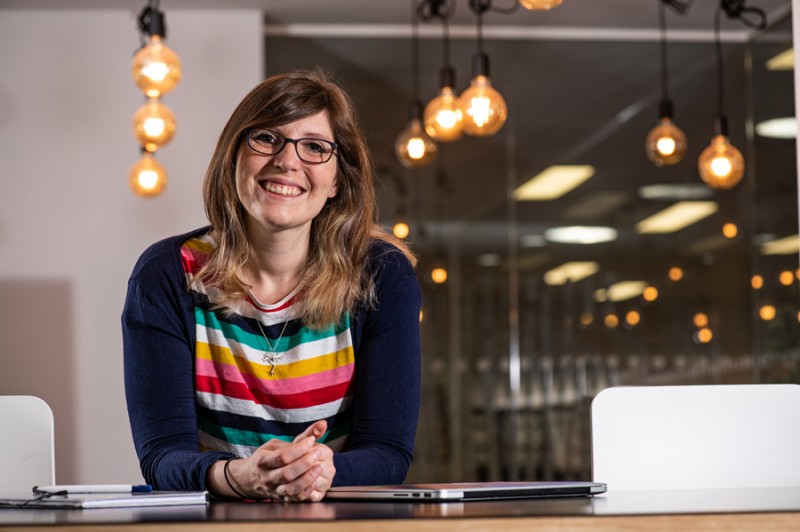
 The Engineering and Physical Sciences Research Council (EPSRC) has
The Engineering and Physical Sciences Research Council (EPSRC) has 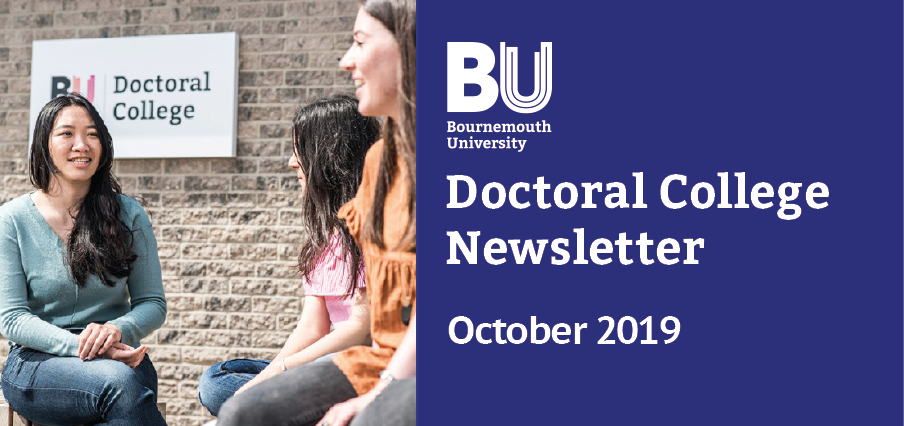
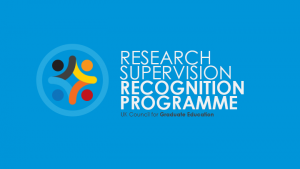

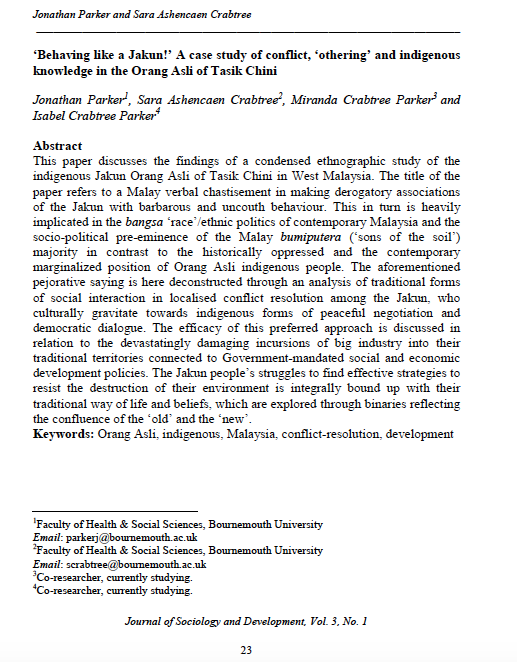


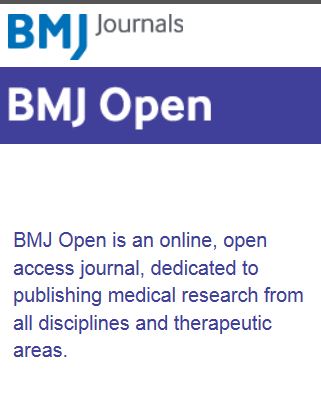
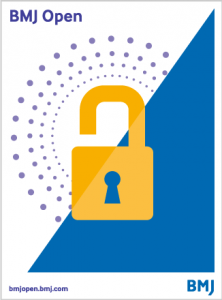
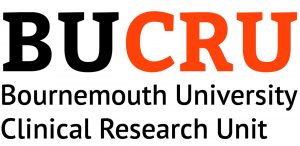

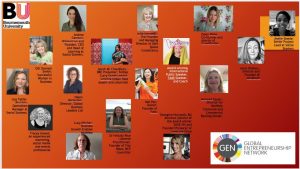


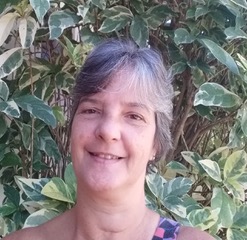

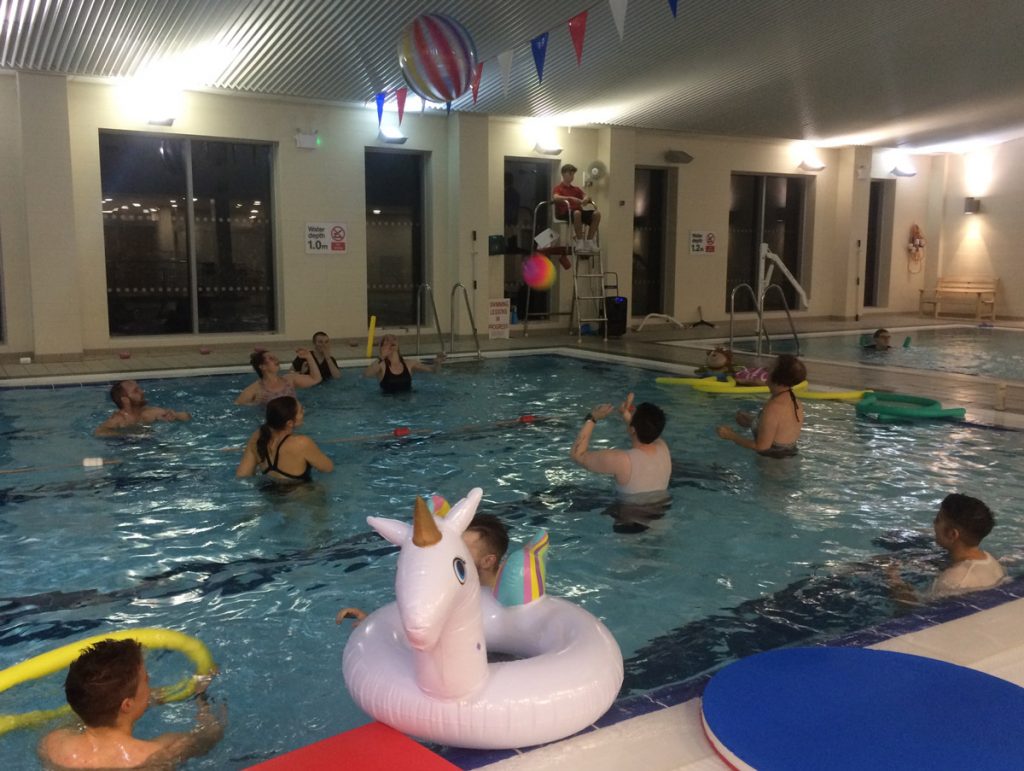












 April’s Café Scientifique – Should we help machines understand and respond to our emotions?
April’s Café Scientifique – Should we help machines understand and respond to our emotions? Postgraduate Research Experience Survey (PRES) 2024 – 2 WEEKS LEFT
Postgraduate Research Experience Survey (PRES) 2024 – 2 WEEKS LEFT Working with The Conversation: online training session – Wednesday 8th May
Working with The Conversation: online training session – Wednesday 8th May Apply for up to £1,000 to deliver an event and take part in a national festival of public engagement with research
Apply for up to £1,000 to deliver an event and take part in a national festival of public engagement with research MSCA Postdoctoral Fellowships 2024
MSCA Postdoctoral Fellowships 2024 Horizon Europe News – December 2023
Horizon Europe News – December 2023